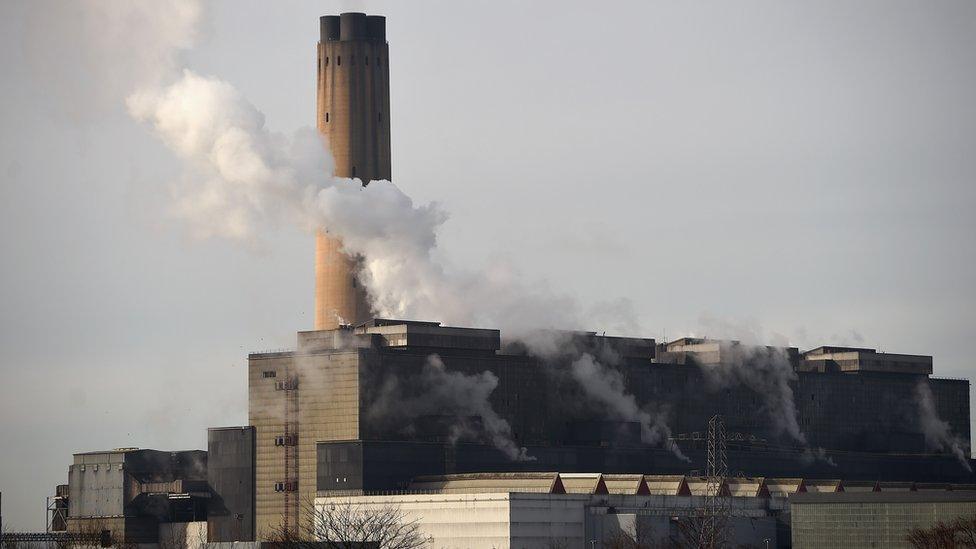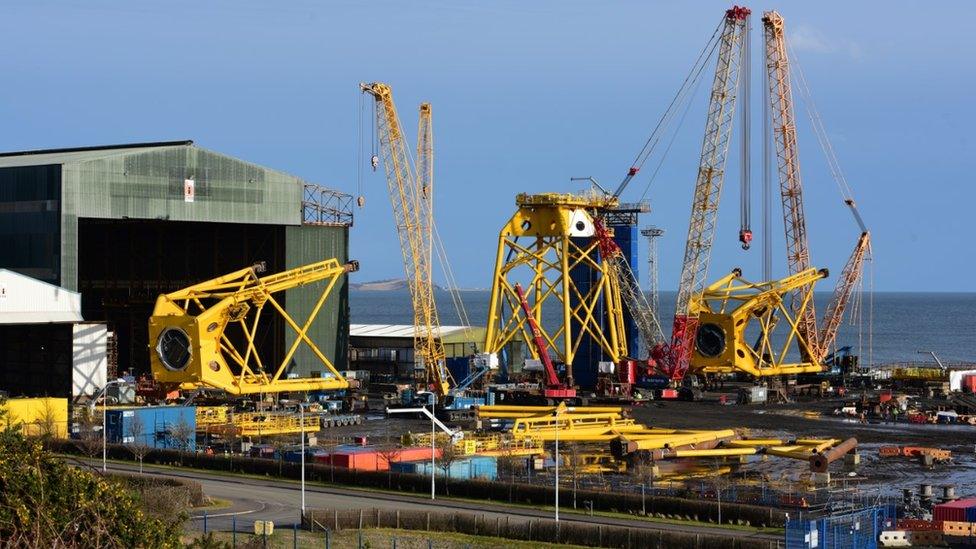Learn Longannet 'lessons' when cutting carbon emissions
- Published

Longannet Power Station closed in 2016
Lessons must be learned from the closure of Scotland's last coal-fired power station if cutting emissions is to be fair, a report suggests.
The Just Transition Commission said that when Longannet closed in 2016 a government "task force" was set up to help secure jobs for its workers.
However, it said little consideration was given to the impact on the nearby village of Kincardine in Fife.
The report, external warned of social injustices if changes were not properly planned.
The Scottish government-appointed commission was asked to look at the "inevitable challenges" of moving to a low-carbon economy.
Its interim report recommends that sector planning begins immediately to map the transition to net-zero greenhouse gas emissions by 2045.
It says that planning needs to be drawn up jointly by government, industries, trade unions and communities.
Failure to engage in this sort of advanced planning risks unintended consequences, it adds. This could lead to social injustices.
'Plan alternative employment'
The closure of Longannet four years ago contributed to cutting carbon emissions but hundreds of jobs were lost in an area which relied on the power station workers.
The interim report said the oil and gas industry and farming were two sectors which were likely to experience significant change over the coming years because of the transition to net zero.
It makes a series of recommendations which it says the Scottish government should consider before the final version is published next year.
Its chairman, Professor Jim Skea, told BBC Scotland: "It is absolutely critical to engage people in this transition to net zero emissions. It's not going to be any good if people in government sit in Edinburgh and tell people how they should be living their lives or what they should be doing.
"You really need to plan ahead and make sure you understand when things are going to have to run down, if they do, and to plan for alternative sources of employment.
He added that we need "to engage with people in the community so they are well aware of what's happening and can make their own plans for the future."
Responding to the report, Climate Change Secretary Roseanna Cunningham said the Scottish government would consider its finding carefully.
She added: "As the pace of our transition increases, ensuring fairness will become ever more important. While the scale of the challenge posed is in no doubt, the Commission's report is also clear - there are significant opportunities for Scotland."
The report said Scotland had not managed to maximise the opportunities of decarbonisation, as the recent loss of contracts to manufacture turbines for a wind farm off the Fife coast showed.
A failure to plan ahead with strategic investment and policy framework in support of the wind power industry dates back to the 1980s, it adds.

The BiFab Methil yard in Fife was mothballed after the Scottish government bailed out the company
The report says: "If we are serious about maximising the economic opportunities associated with decarbonisation, this cannot happen again."
The commission looked at the Oil and Gas sector's recently published vision for the next 15 years, called Roadmap 2035.
While it praised the attempt by the industry to plan strategically for the future, it questions whether there was sufficient consideration for the future of North Sea workers.
It said there was a "lack of awareness among the workforce" of the plans and said this emphasised why such proposals needed to be "owned" by workers and communities as well as companies.
Deirdre Michie, the chief executive of Oil and Gas UK, said Roadmap 2035 showed the industry had a "credible plan for the future".
"Delivering the Roadmap means that the sector can contribute to supporting the energy transition as well as secure and affordable energy, ensuring hundreds of thousands of jobs and crucially developing the skills and expertise Scotland needs to find solutions to meet net zero ambitions," she added.
- Published24 March 2016
